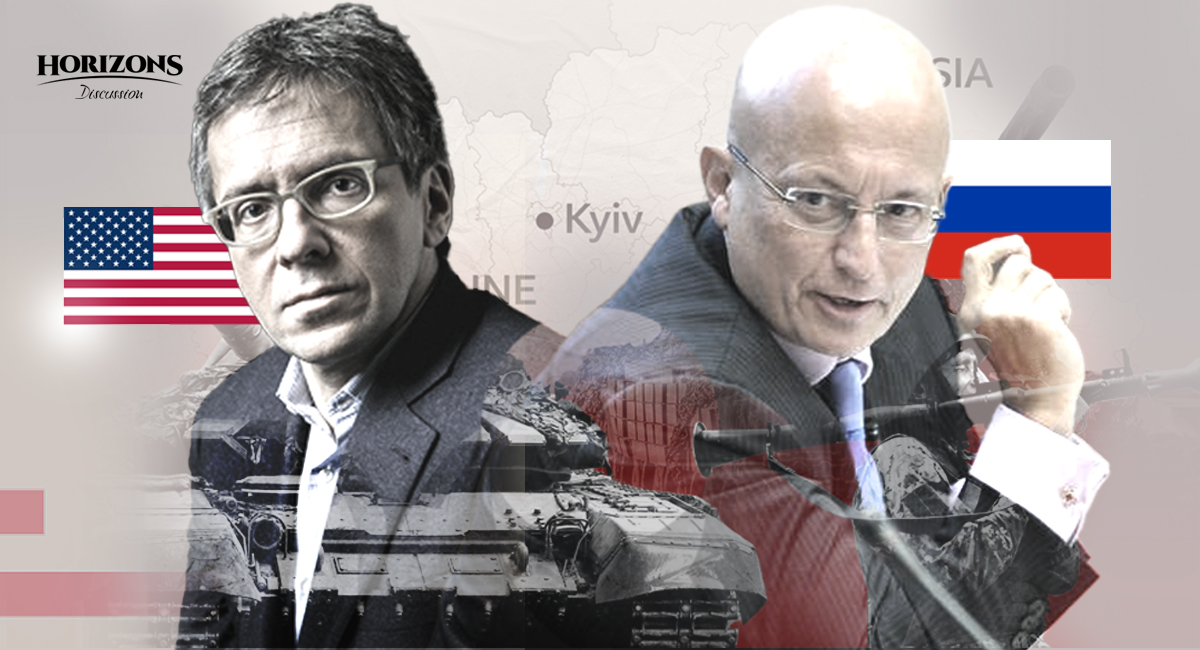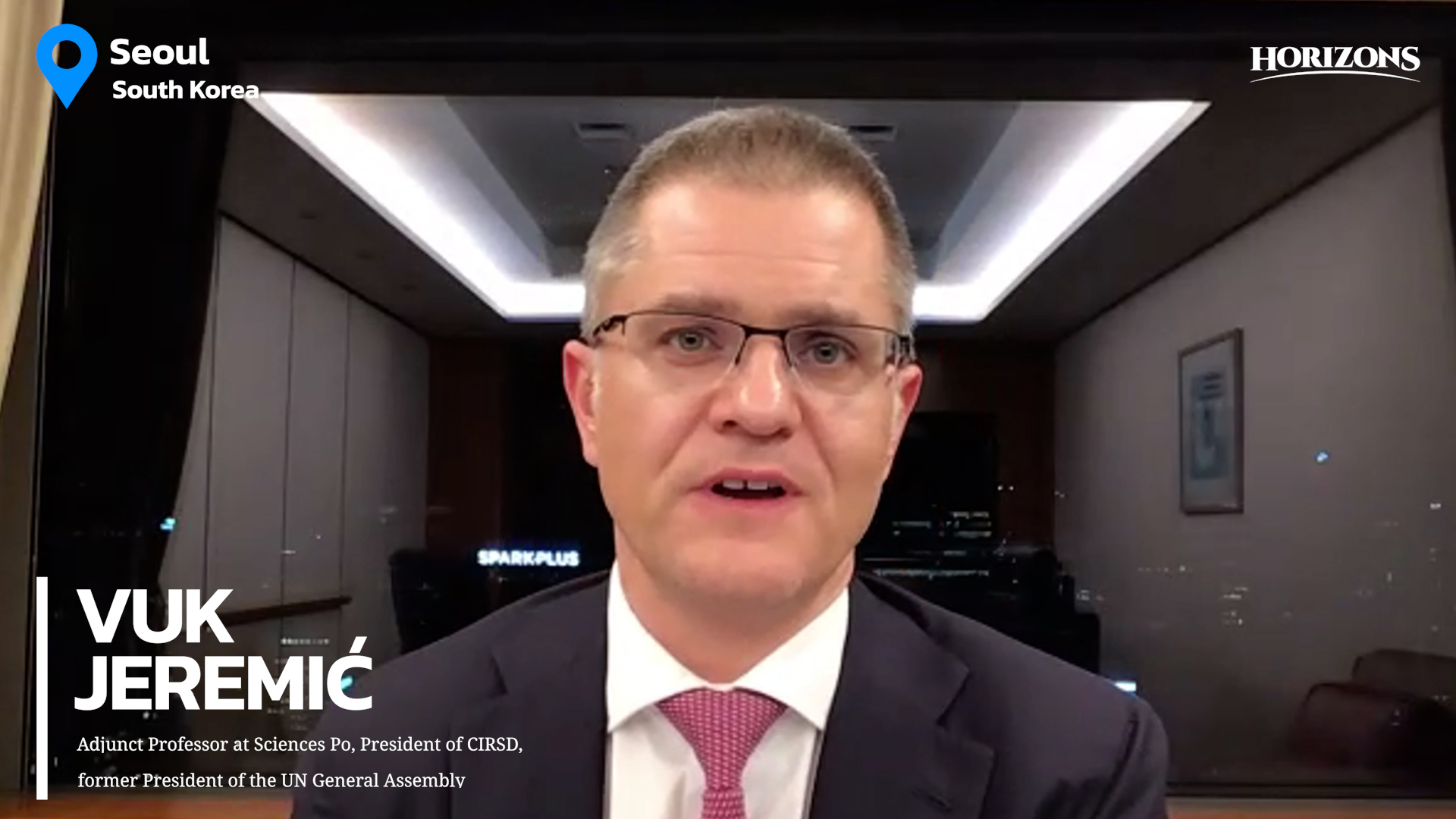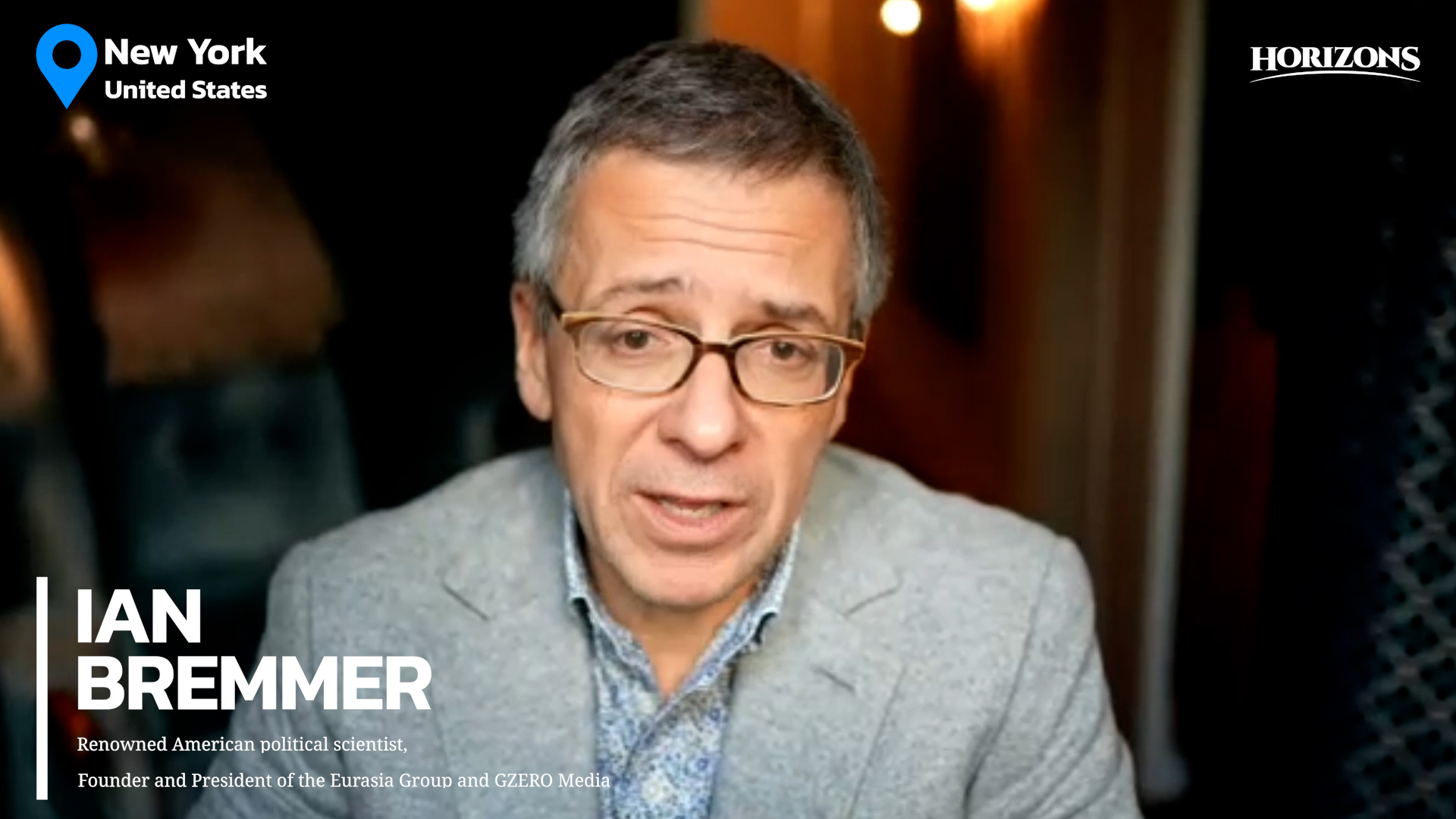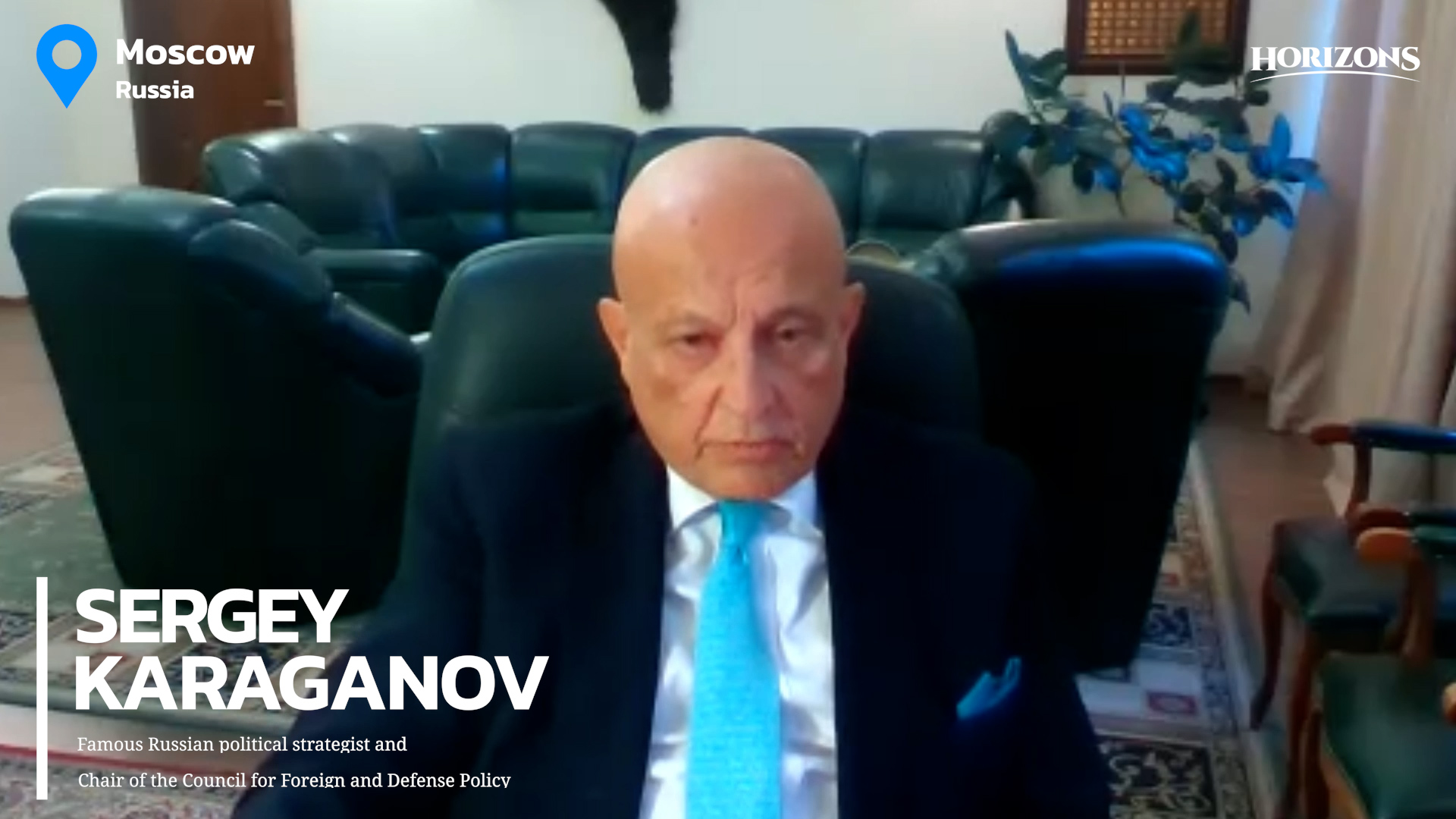European Russophobia and Europe’s Rejection of Peace: A Two-Century Failure
Europe has repeatedly rejected peace with Russia at moments when a negotiated settlement was available, and those rejections have proven profoundly self-defeating. Read more
In an electrifying debate hosted by Horizons, Ian Bremmer, president of the Eurasia Group, and Sergey Karaganov, a renowned Russian political strategist, confronted the pressing challenges facing the global order. Moderated by Vuk Jeremić, editor-in-chief of Horizons, the event explored the complexities of shifting power structures, the protracted conflict in Ukraine, and the role of nuclear deterrence in contemporary geopolitics.

Geopolitical Crisis and the Future of the World Order
Bremmer opened the discussion by highlighting the “geopolitical crisis” stemming from misalignments in global power balance and post-Cold War transitions. He described the current era as marked by “geopolitical instability” driven by Russia’s exclusion from Western institutions, China’s rise without adopting Western democratic norms, and domestic disillusionment in Western nations.
Karaganov countered by proclaiming the end of Western dominance, dating back to the 16th century. “We are at the end of several historic periods,” he asserted, suggesting that a new multipolar era is emerging as Eastern powers regain influence.

Divergent Views on Ukraine
The Ukraine conflict was a focal point, with Bremmer attributing its escalation to the annexation of Crimea in 2014 and Russia’s “special military operation” in 2022. He described Russia’s actions as strategic missteps that catalyzed NATO unity and expansion. “The Russians are not winning… Ukraine, in some form de facto, will end up partitioned,” Bremmer predicted, emphasizing the human and geopolitical costs involved.
Conversely, Karaganov traced the origins to NATO’s expansion in 2004, arguing that Russian moves were a necessary response to Western policies. He provocatively noted, “We are stopping [the West’s advance] with hard power… This war has had very positive effects on Russia.”

The Debate on Sanctions and Nuclear Deterrence
The impact of Western sanctions on Russia sparked heated dialogue. Bremmer conceded that “sanctions have been ineffective” in destabilizing the Russian economy or undermining Putin’s power. Karaganov, however, framed sanctions as a net positive for Russia, citing national unity and economic recalibration: “We got rid of the fifth column… energized our economy and science.”
Both participants expressed concern over nuclear deterrence. “Deterrence in the traditional sense is failing,” Bremmer remarked, pointing to increased global complacency regarding nuclear risks. Karaganov called for the reinforcement of nuclear strategy, warning that failure to do so could have dire consequences.

A Fascinating Exchange with No Shortage of Controversy
The debate concluded with a rapid-fire round where both experts offered succinct views on topics ranging from the future of Taiwan to the European Union’s stability. Karaganov even claimed, “We shall help the United States to become a normal power by inflicting one more defeat in Ukraine,” underlining his perspective on Russia’s long-term vision.
This event, emblematic of Horizons’ commitment to fostering informed and open discourse, offered deep insights into the complex interplay of global power, military strategy, and economic resilience.
For Full Coverage and Expert Analyses, Visit CIRSD.org/en/horizons